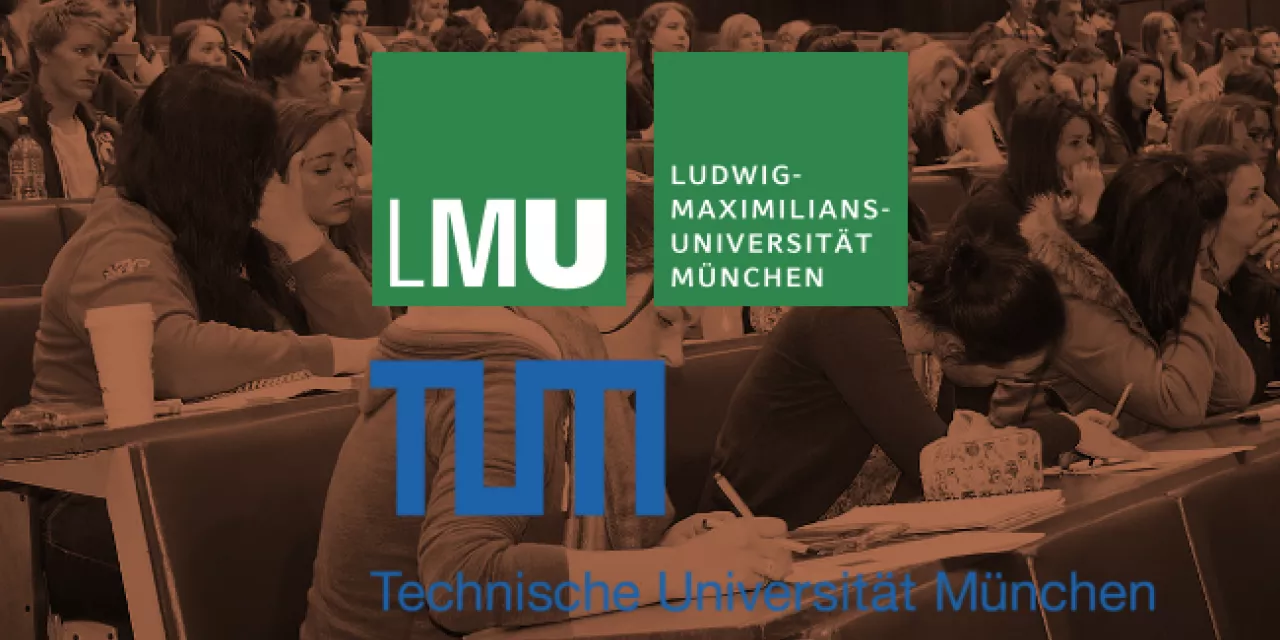Technical University of Munich (TUM) and Ludwig-Maximilians-Universität München (LMU Munich)

The BigBrotherAward 2017 in the “Education” Category goes to Technical University of Munich (TUM) and Ludwig-Maximilians-Universität München (LMU Munich), represented by Prof. Dr. Dr. h.c. mult. Wolfgang A. Herrmann and Prof. Dr. rer. pol. Bernd Huber, respectively, for cooperating with the online learning provider Coursera.
It sounds like a tempting idea: A professor or lecturer teaches a course at a university. This lecture happens to be recorded, and the result is offered to students all over the world. They can now listen to and watch lectures that are not offered in the city or country where they study. This form of globalized education is called MOOC, or “massively open online course”. US company Coursera is the undisputed global leader1 in the MOOC market.
A company? That’s right, it’s about making money. Accessing most of the educational resources is free once you registered with your personal data. Payment is typically required if the student needs a transcript with credit recommendations that they can present to their university or college. But does this generate a lot of money?
Let’s take a look at the contract between Coursera and, say, the University of Michigan: Under the heading “Outlook – Monetarization” there is a paragraph allowing Coursera to offer companies the service of filtering students according to courses and learning outcomes, and to approach matching students. What a convenient opportunity for employers and recruitment agencies to identify and contact potential candidates for top jobs! This offer is not for free, of course.
This is enough to get an idea of the treasure trove of data Coursera can pile up aided by colleges and universities: who takes which course, how quickly or how well do they complete the exams – these details are extremely interesting.
But it’s not just companies that use Coursera’s treasure trove: Student data are stored and processed in the USA where they are within reach of US government agencies and might affect decisions on things like entry permits etc. So how transparent and open is Coursera about how they handle student data and critical questions about them? This was found out by a Swiss Professor who tried to ask Coursera for information about the data stored about him and his course participants: He and his course were rigorously blocked by Coursera.
The Munich universities that receive the BigBrotherAward today have entered a cooperation agreement with Coursera. The universities produce selected lectures for online presentation and upload them to Coursera. Students can take online lectures and receive credits for the courses they are enrolled in.
We regard this cooperation of the Munich universities with Coursera as a marketing operation. The two universities can present themselves globally together with top international universities. Conversely, Coursera adorns itself with their names.
It seems that data protection has not been given much thought. Likewise, we miss a critical discussion of who owns the content produced and who profits from it.
By the way, taking Coursera courses is still voluntary for the students. This BigBrotherAward is meant as a warning to colleges and universities not to make participation in MOOCs offered by privacy-ignoring companies a mandatory way to earn study credits.
Actually it’s bad enough that education increasingly becomes a commodity as publicly financed institutions of higher education distribute their offerings via commercial providers. If an appropriate European MOOC platform does not exist, then it is the the universities’ duty to create such a platform.
By giving a BigBrotherAward to TUM and LMU Munich, we would like to remind both universities and all other education institutions that the long-term business model of such “education providers” hinges on contracts in which the students are not the customers of the MOOC provider, they are the product being sold.
Congratulations to Technical University of Munich and Ludwig-Maximilians-Universität München for receiving the BigBrotherAward 2017!
- Keine Reaktion der TU München09 May 2017Update zu BBAs
Laudator.in

1 tagesschau.de (German): „Online-Kurse von Unis in der Kritik. Massig Daten von Studenten“ (Web-Archive-Link)




